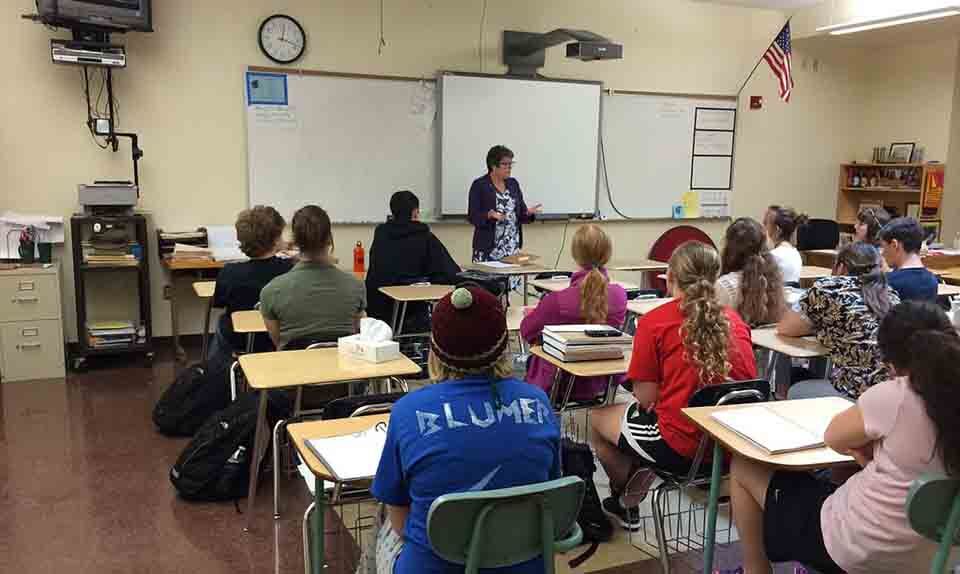Oregon Pupils Must Pass Standalone Financial Literacy And Career Prep From 2027 To Graduate

Starting with this fall’s sophomores, Oregon high school pupils must take- and pass, stand-alone financial literacy and college and career preparation classes before graduating. The courses will apply to the class of 2027 unless waivers are granted.
There has been considerable pushback against the implementation of the new requirement by lawmakers.
Graduation requirements in Oregon have received a lot of attention, as high schoolers now need 24 credits to graduate, 13 of which must be in English, math, social studies, and science. This follows the new requirement that Oregon teachers will soon need the science of reading training that extends to reading disabilities to comply with legislation by 2029.
Oregon Law Says Separate Financial Literacy And Career Preparedness Classes Are Soon Compulsory
Finding that just 7 states require a semester-long class in financial literacy to graduate, a 2023 study by the Center for Financial Literacy at Champlain College in Vermont found that another 17 states will have to phase in these requirements by 2028- including Oregon. In comparison:
- California where legislation was recently passed making a standalone class in financial literacy a requirement for the class of 2031.
- Washington state requires that students be given the option to take a financial literacy class but this is not a requirement to graduate.
Compulsory high school financial literacy courses have been gaining steam across the U.S.. The new Oregon graduation requirements have backers that include economics educators and members of the broader financial industry.
The legislation arose from concern about student loan debt and the envisaged classes will typically cover everything from understanding the basics of credit cards and interest rates, to how to pay taxes and open a bank account, as well as coping with identity theft.
Because meeting state standards has been seen as an obstacle for historically marginalized students, State school board members and Oregon Department of Education officials support requiring all students to pass one of several standardized tests or create an in-depth assignment judged by their teacher.
Implementation may be delayed as districts can apply for a year-long waiver to begin the new rules for the class of 2028.
Despite their reluctance, the Oregon Board of Education made the decision this summer following insistence from lawmakers and legislative lawyers.
Oregon Faces Lobbies Against New Stand-Alone High School Classes
School boards, school administrators, and teachers unions lobbied heavily for schools to be allowed to integrate the new rules into existing courses, such as math, rather than teach them as separate classes, citing a lack of dedicated funding for hiring or training staff and a tight timeline, especially for rural school districts.
Charlene Williams, Oregon State schools chief, recommended maximum flexibility for school boards to meet the new requirements, but a legal opinion squelched the effort, leaving little wiggle room.
Williams- despite repeated questioning from board member Shimiko Montgomery at a meeting last month, did not endorse requiring districts to offer separate personal finance and college and career readiness courses. Subsequently, Montgomery, with board Vice Chair Jennifer Scurlock voted against following the legislative counsel’s directive.
With the abstention of a third state school board member, Libra Forde, that would have seen the issue going back to the education agency’s drawing board, Montgomery pleaded for the Department of Education to work with the governor’s office to pressure lawmakers to earmark money to help school districts comply but changed her vote.
This will see the local control cherished by Oregon school district leaders and their employees being relinquished despite their resentment of mandates being handed down without attached funding.
See also: Oregon School Districts: Calls For Superintendent to Resign Following Newberg-Dundee Budget Deficit
Reed Scott-Schwalbach, president of the Oregon Education Association, indicated that while union members support the idea, her union remains concerned about the implementation of the new rules.
She said, “Financial literacy is an important life skill. We want students to be ready for life, but the flexibility considered for the timeline is a problem for small districts, where staffing is tight.”
